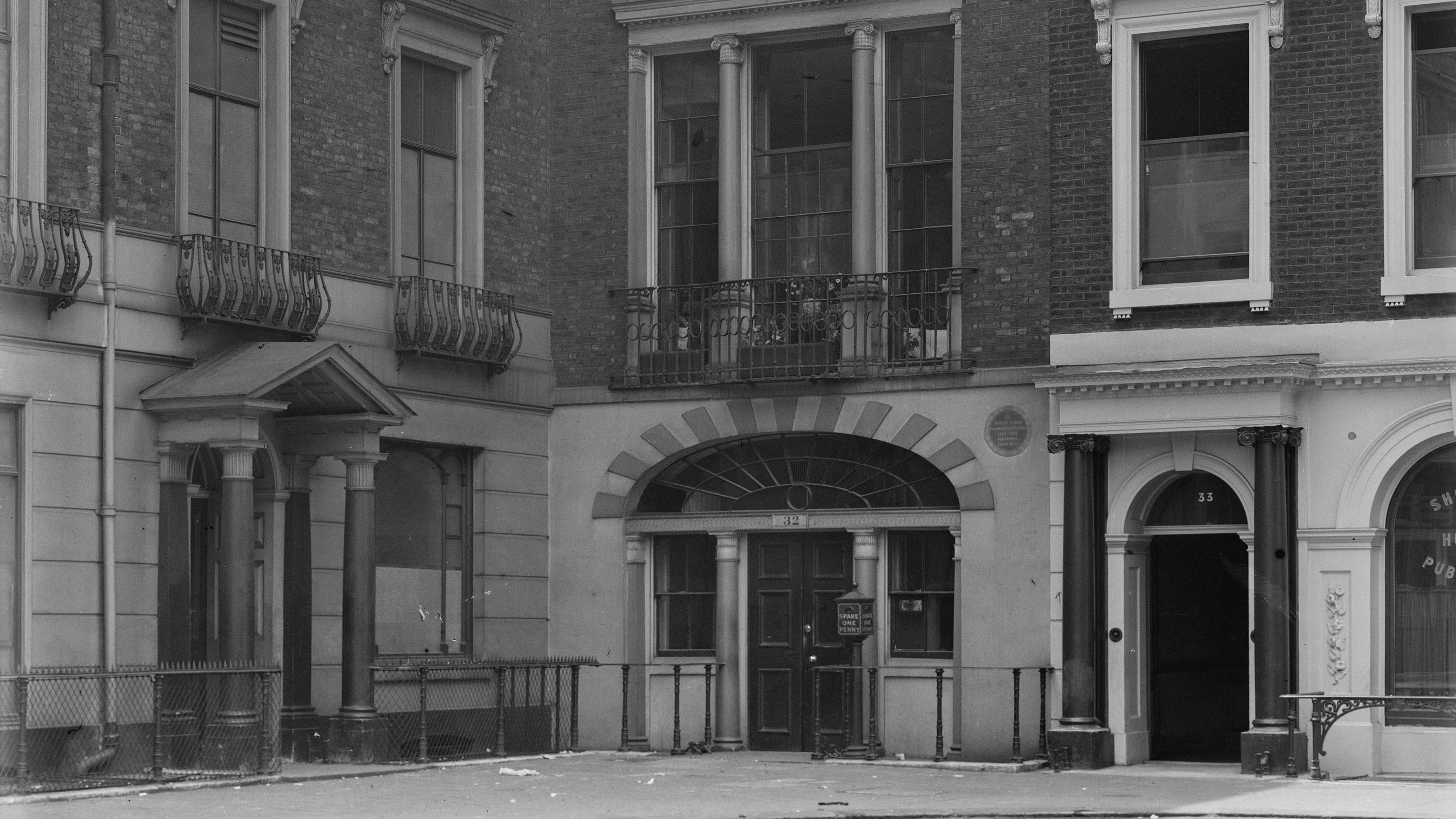-

A country house that's 'the finest-looking estate between the Humber and the Tweed' (at least according to Queen Victoria)
By Toby Keel
-
-

Liverpool and literature: Country Life Quiz of the Day, July 18, 2025
By Country Life
-

William Kendall: 'We need to build a lot more solar farms and some wind turbines, too'
By William Kendall
-

‘Everyone had dodgy magazines hidden under their beds and I had interior design magazines’: James Thurstan Waterworth's consuming passions
By Lotte Brundle
-

Six beautiful homes around the world, from Portofino to Provence to Palm Beach
By Toby Keel
-

Eat our local cheeses or lose our local cheeses, warns Neal's Yard Dairy
By Emma Hughes
-

The 'greatest battle for 300 years': England's great estates face up to a green future
By Jane Wheatley
-
Exquisite houses, the beauty of Nature, and how to get the most from your life, straight to your inbox.
People & Places
-
-

‘‘In the silence, it is the most perfect blue I have ever seen. If my goggles weren’t already overflowing with water I might even weep’: Learning to freedive on the sparkling French Riviera with a five-time World Champion
-

West London's spent the last two decades as the laughing stock of the style set — here's how it got its groove back
-

‘To this day, it is as attractive as when Hercules first laid eyes on it’: How to escape the crowds on the Amalfi Coast, according to those in the know
-

Brat behaviour: The chef behind Shoreditch institution Brat and Soho favourite Mountain is running away to Wales
-
Property
View all Property-

A country house that's 'the finest-looking estate between the Humber and the Tweed' (at least according to Queen Victoria)
By Toby Keel
-
-

Six beautiful homes around the world, from Portofino to Provence to Palm Beach
By Toby Keel
-

An idyllic home where the forest meets the sea, for sale for the first time in over half a century
By Penny Churchill
-

'Just look at those stairs. Just as an art form, they are bewitching, like the shell of a nautilus': The lure of buying a stairway to heaven
By Toby Keel
-

Best country houses for sale this week
By Country Life
-

The one-of-a-kind estate with two private beaches and a surf house on storied Martha's Vineyard island
By Rosie Paterson
-

The architect who created the MI6 building only designed a tiny handful of houses — and one of them is now up for sale in one of London's most bucolic spots
By Toby Keel
-
Our expert voices
Interiors
View All Interiors-

21 of the greatest craftspeople working in Britain today, as chosen by the nation's best designers and architects
By Giles Kime
-
-

The transformative renovation of a Grade II-listed property with an 'unusual footprint'
By Arabella Youens
-

I've seen the light: How a dark and gloomy kitchen in the Scottish Borders was reconfigured for 21st century living
By Arabella Youens
-

'Comfortable, cosseting and far from the madding crowd': The recently refurbished Cornish cottage that proves Victorian decor is making a comeback
By Giles Kime
-

18 inspiring ideas to help you make the most of meals in the garden this summer
By Amelia Thorpe
-

'These aren't just rooms. They are spaces configured with enormous cunning, artfully combining beauty with functionality': Giles Kime on the wonders of WOW!house 2025
By Giles Kime
-

How the deep-lustre of copper brings period glamour to this kitchen
By Arabella Youens
-

The beauty’s in the detail: How English stone specialist Artorius Faber helped to bring Country Life's Chelsea stand to life
By Artorius Faber
SPONSORED
-
LIFE & STYLE
View All LIFE & STYLE-
-

Sophia Money-Coutts: Is there even any point in setting an out of office, these days?
By Sophia Money-Coutts
-

The teeny tiny car that you absolutely don’t need, but will absolutely want this summer — and it has an inbuilt shower
By Rosie Paterson
-

‘It only remains for our descendants to curse our impotence and laissez-faire’: Only four photographs of a storied London townhouse survive inside the Country Life archive — and it was brutally demolished not once, but twice
By Melanie Bryan
-

You can’t always rely on the Great British summer — but you can rely on its watches
By Chris Hall
-
COUNTRYSIDE
View All THE COUNTRYSIDE-
-

The 'greatest battle for 300 years': England's great estates face up to a green future
By Jane Wheatley
-

'He unleashed a series of war cries, then intercepted the vole mid-air': There's nothing remotely common about the common kestrel
By Mark Cocker
-

The truth about P.G. Wodehouse: Robert Daws on playing England's greatest comic writer
By Toby Keel
-
Gardens
View All Gardens-

Five British gardens have a starring role on the New York Times's list of 25 must-see gardens — here are the ones they forgot
By Lotte Brundle
-
-

The garden created by a forgotten genius of the 1920s, rescued from 'a sorry state of neglect to a level of quality it has not known for over 50 years'
By George Plumptre
-

Alan Titchmarsh: My garden is as pretty as I've ever known it, thanks to an idea I've rediscovered after 50 years
By Alan Titchmarsh
-

The Hollywood garden designers who turned their hand to a magical corner of Somerset
By Caroline Donald
-

Sarah Raven: The flowers I have that are flourishing superbly, despite the battering heat
By Sarah Raven
-

The 'Rose Labyrinth' of Coughton Court, where 200 varieties come together in this world-renowned garden in Warwickshire
By Val Bourne
-
ART & CULTURE
View all ART & CULTURE-
-

101 gold rats, a 'self portrait as a horse' and a tribute to motherhood take home top prizes at this year's Royal Academy Summer Exhibition
By Lotte Brundle
-

‘One of the most effective pieces of propaganda ever made’: the Bayeux Tapestry heads to Britain for the first time in almost a millennium
By Carla Passino
-

‘They remain, really, the property of all of those who love them, know them, and tell them. They are our stories, the inheritance of the people of Scotland’: The Anthology of Scottish Folk Tales
By Patrick Galbraith
-

Canine muses: Lucian Freud's etchings of Pluto the whippet are among his most popular and expensive work
By Agnes Stamp
-
Travel
View All Travel-

'I found myself in a magical world of a sun-dappled forest, speckled with wild flowers of kaleidoscopic colours and brilliant mosses': Solo walking in the Pyrenees
By Teresa Levonian Cole
-
-

Beyond Royal Portrush: Castles, country houses and ancient towers in the other dimension of golf in Ireland
By Toby Keel
-

‘To this day, it is as attractive as when Hercules first laid eyes on it’: How to escape the crowds on the Amalfi Coast, according to those in the know
By Luke Abrahams
-

The 'strikingly beautiful, authentic and innovative' Highland castle that's been saved for the ages, and available to rent by the weekend
By Mary Miers
-

Jnane Rumi, Marrakech, hotel review: 'The most talked about opening this year — and for good reason'
By Christopher Wallace
-

‘‘In the silence, it is the most perfect blue I have ever seen. If my goggles weren’t already overflowing with water I might even weep’: Learning to freedive on the sparkling French Riviera with a five-time World Champion
By Chris Cotonou
-
Food & Drink
View All Food & Drink-

Eat our local cheeses or lose our local cheeses, warns Neal's Yard Dairy
By Emma Hughes
-
-

'Some would argue an unbaked cheesecake isn’t a cheesecake at all. They're wrong': Gill Meller's blackcurrant and lemon cheesecake recipe
By Gill Meller
-

Tom Parker Bowles: This 90-year-old Italian restaurateur makes the world's best sorbet and granita
By Tom Parker Bowles
-

Brat behaviour: The chef behind Shoreditch institution Brat and Soho favourite Mountain is running away to Wales
By Will Hosie
-

The last miracle of St Boswell? How a Scottish potato field became the world's least-likely producer of sparkling wine
By Lotte Brundle
-

How to make The Connaught Bar's legendary martini — and a few others
By Rosie Paterson
-

Gill Meller's tomato, egg, bread and herb big-hearted summer salad
By Gill Meller
-







